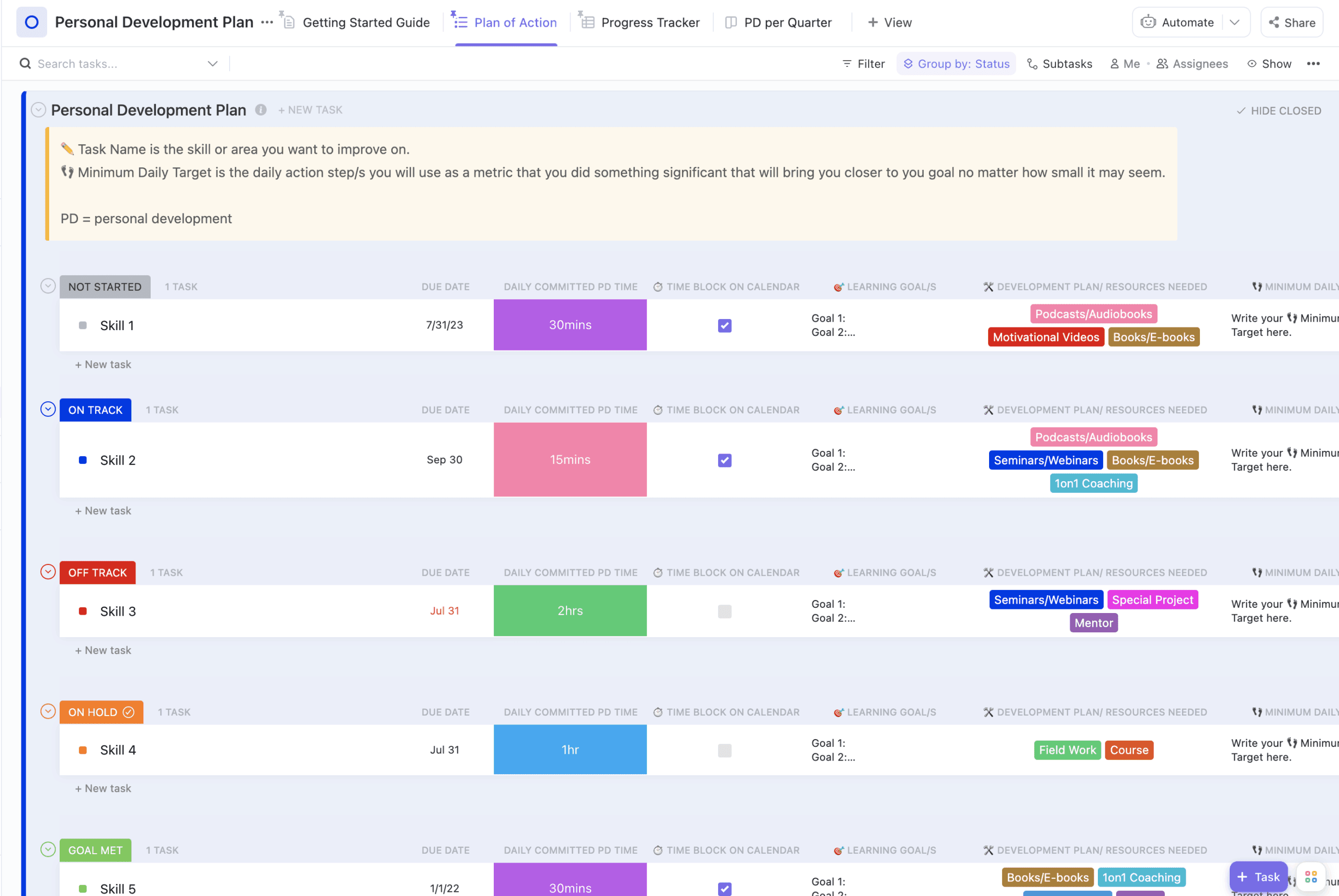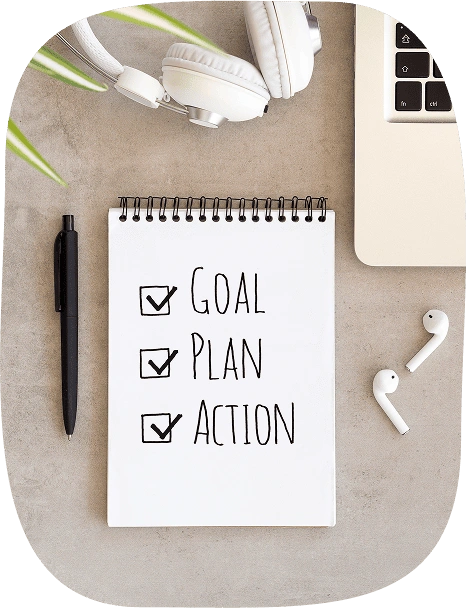Career development plan examples, career planning steps, career development plan template, career development plan for employees, Goal-setting template, what is Career development plan
Learn how to create a personalized career development plan that aligns with your goals, strengths, and aspirations. Take control of your growth with a clear roadmap.
Creating a personal career development plan may sound cliché. From college seminars to online courses, it’s a staple piece of advice you’ve probably heard countless times. After all, all plans change over time, and a career development plan is no exception. If you are a mid-career professional, a career development plan might seem optional. However, a well-structured career development plan can act as a source of direction when you feel anxious about your career path. More importantly, it can help you make better decisions without giving in to peer pressure.

What is a Career Development Plan?
Benefits of a Career Development Plan
Benefits of a Career Development Plan
Key Elements of a Career Development Plan
6 Essential Career Planning Steps
Wondering how to create a personalized career development plan? Here’s a step-by-step process:
Career Development Plan Templates
Career Development Roadmap by Template.net

The Career Roadmap Template provides a graphic-based outline of the different stages of your career plan. This allows you to visualize how each stage affects your ultimate goal and prioritize effectively. Whether you are a fresher or an experienced professional, you can break down your career goals into smaller milestones like skills to be developed, career coaching/mentoring, internships/freelance projects, networking on LinkedIn, etc.
Career Progression Framework Template by AIHR

If you aspire to become a senior manager or Vice President, you must plan strategically for the short-term and long-term. Only by proving yourself as an individual contributor or team member can you hope to be a contender for the top job. With AIHR’s Career Progression Framework Template, you can not only map the different roles leading to the VP position but also identify what you need to learn and how to engage with others in order to get there.
Personal Development Plan Template from ClickUp

Upskilling for career growth may provide professional benefits, but it is also a deeply personal endeavor. ClickUp’s Personal Development Plan Template can be adapted to both personal and professional goals. It enables you to set daily learning goals, track progress, and identify any areas of improvement.
Career Development Plan Examples
Business Analyst Aspiring to be a Project Manager – Vishal
As a Business Analyst, Vishal already has some skills relevant to a PM’s role; however, he lacks experience and certifications to be a credible candidate for the job.

Here’s the Career Development Plan Vishal came up with:
Accelerate Your Career with Personalized Job Recommendations from GroYouth
Having a personalized career development plan makes you job-ready and confident. However, finding the right job opportunity can often be a challenge. Traditional job boards and recruitment platforms are saturated with hundreds of people applying for the same jobs. Your application may not even make it a recruiter. With GroYouth, you can attract top employers without having to apply for dozens of jobs and wait patiently for a response.
GroYouth’s AI-powered platform maps your skills and talents through scientific assessments and recommends jobs that align with your career goals. You can be sure that the job postings are legit—our team rigorously verifies them before sending them your way. If you’re not sure about the career you want to pursue, our team of career counsellors and experts has got you covered. We provide real-world insights on how to create a personalized career development plan based on deep experience.
With GroYouth, you can take proactive steps to increase your market value, master interview fears and accelerate your career.
Sign up today for free or contact us for any questions


